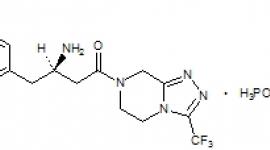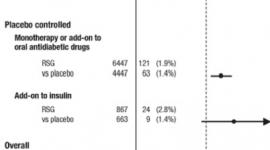GlucaGen Administration - GlucaGen Patient Information
Brand Names: GlucaGen
Generic Name: Glucagon Hydrochloride
GlucaGen, glucagon hydrochloride, full prescribing information
Uses For Glucagen
Glucagon belongs to the group of medicines called hormones. It is an emergency medicine used to treat severe hypoglycemia (low blood sugar) in patients with diabetes who have passed out or cannot take some form of sugar by mouth.
Glucagon is also used during x-ray tests of the stomach and bowels to improve test results by relaxing the muscles of the stomach and bowels. This also makes the testing more comfortable for the patient.
Glucagon also may be used for other conditions as determined by your doctor.
Glucagon is available only with your doctor's prescription.
Once a medicine has been approved for marketing for a certain use, experience may show that it is also useful for other medical problems. Although these uses are not included in product labeling, glucagon is used in certain patients with the following medical conditions or undergoing certain medical procedures:
- Overdose of beta-adrenergic blocking medicines
- Overdose of calcium channel blocking medicines
- Removing food or an object stuck in the esophagus
- Hysterosalpingography (x-ray examination of the uterus and fallopian tubes)
Before Using Glucagen
In deciding to use a medicine, the risks of taking the medicine must be weighed against the good it will do. This is a decision you and your doctor will make. For this medicine, the following should be considered:
Allergies
Tell your doctor if you have ever had any unusual or allergic reaction to this medicine or any other medicines. Also tell your health care professional if you have any other types of allergies, such as to foods, dyes, preservatives, or animals. For non-prescription products, read the label or package ingredients carefully.
Pediatric
This medicine has been tested in children and, in effective doses, has not been shown to cause different side effects or problems than it does in adults.
Geriatric
Many medicines have not been studied specifically in older people. Therefore, it may not be known whether they work exactly the same way they do in younger adults. Although there is no specific information comparing use of glucagon in the elderly with use in other age groups, it is not expected to cause different side effects or problems in older people than it does in younger adults.
Pregnancy
| Pregnancy Category | Explanation | |
|---|---|---|
| All Trimesters | B | Animal studies have revealed no evidence of harm to the fetus, however, there are no adequate studies in pregnant women OR animal studies have shown an adverse effect, but adequate studies in pregnant women have failed to demonstrate a risk to the fetus. |
Breast Feeding
There are no adequate studies in women for determining infant risk when using this medication during breastfeeding. Weigh the potential benefits against the potential risks before taking this medication while breastfeeding.
Interactions with Medicines
Using this medicine with any of the following medicines may cause an increased risk of certain side effects, but using both drugs may be the best treatment for you. If both medicines are prescribed together, your doctor may change the dose or how often you use one or both of the medicines.
- Acenocoumarol
- Anisindione
- Dicumarol
- Phenindione
- Phenprocoumon
- Warfarin
Interactions with Food/Tobacco/Alcohol
Certain medicines should not be used at or around the time of eating food or eating certain types of food since interactions may occur. Using alcohol or tobacco with certain medicines may also cause interactions to occur. Discuss with your healthcare professional the use of your medicine with food, alcohol, or tobacco.
Other Medical Problems
The presence of other medical problems may affect the use of this medicine. Make sure you tell your doctor if you have any other medical problems, especially:
- Diabetes mellitus—When glucagon is used for test or x-ray procedures in patients with diabetes that is well-controlled, a rise in blood sugar may occur; otherwise, glucagon is an important part of the management of diabetes because it is used to treat hypoglycemia (low blood sugar)
- Insulinoma (tumors of the pancreas gland that make too much insulin) (or history of)—Blood sugar concentrations may decrease
- Pheochromocytoma—Glucagon can cause high blood pressure
Proper Use of glucagon
This section provides information on the proper use of a number of products that contain glucagon. It may not be specific to Glucagen. Please read with care.
Glucagon is an emergency medicine and must be used only as directed by your doctor. Make sure that you and a member of your family or a friend understand exactly when and how to use this medicine before it is needed .
Glucagon is packaged in a kit with a vial of powder containing the medicine and a syringe filled with liquid to mix with the medicine. Directions for mixing and injecting the medicine are in the package. Read the directions carefully and ask your health care professional for additional explanation, if necessary.
Glucagon should not be mixed after the expiration date printed on the kit and on one vial. Check the date regularly and replace the medicine before it expires. The printed expiration date does not apply after mixing, when any unused portion must be discarded.
Dosing
The dose of this medicine will be different for different patients. Follow your doctor's orders or the directions on the label. The following information includes only the average doses of this medicine. If your dose is different, do not change it unless your doctor tells you to do so.
The amount of medicine that you take depends on the strength of the medicine. Also, the number of doses you take each day, the time allowed between doses, and the length of time you take the medicine depend on the medical problem for which you are using the medicine.
- As an emergency treatment for hypoglycemia:
- Adults and children weighing 20 kilograms (kg) (44 pounds) or more: 1 milligram (mg). The dose may be repeated after fifteen minutes if necessary.
- Children weighing up to 20 kg (44 pounds): 0.5 mg or 20 to 30 micrograms (mcg) per kg (9.1 to 13.6 mcg per pound) of body weight. The dose may be repeated after fifteen minutes if necessary.
Storage
Store the medicine in a closed container at room temperature, away from heat, moisture, and direct light. Keep from freezing.
Keep out of the reach of children.
Do not keep outdated medicine or medicine no longer needed.
Precautions While Using Glucagen
Patients with diabetes should be aware of the symptoms of hypoglycemia (low blood sugar). These symptoms may develop in a very short time and may result from:
- using too much insulin ("insulin reaction") or as a side effect from oral antidiabetic medicines.
- delaying or missing a scheduled snack or meal.
- sickness (especially with vomiting or diarrhea).
- exercising more than usual.
Unless corrected, hypoglycemia will lead to unconsciousness, convulsions (seizures), and possibly death. Early symptoms of hypoglycemia include: anxious feeling, behavior change similar to being drunk, blurred vision, cold sweats, confusion, cool pale skin, difficulty in concentrating, drowsiness, excessive hunger, fast heartbeat, headache, nausea, nervousness, nightmares, restless sleep, shakiness, slurred speech, and unusual tiredness or weakness.
Symptoms of hypoglycemia can differ from person to person. It is important that you learn your own signs of low blood sugar so that you can treat it quickly. It is a good idea also to check your blood sugar to confirm that it is low.
You should know what to do if symptoms of low blood sugar occur. Eating or drinking something containing sugar when symptoms of low blood sugar first appear will usually prevent them from getting worse, and will probably make the use of glucagon unnecessary. Good sources of sugar include glucose tablets or gel, corn syrup, honey, sugar cubes or table sugar (dissolved in water), fruit juice, or nondiet soft drinks. If a meal is not scheduled soon (1 hour or less), you should also eat a light snack, such as crackers and cheese or half a sandwich or drink a glass of milk to keep your blood sugar from going down again. You should not eat hard candy or mints because the sugar will not get into your blood stream quickly enough. You also should not eat foods high in fat such as chocolate because the fat slows down the sugar entering the blood stream. After 10 to 20 minutes, check your blood sugar again to make sure it is not still too low.
Tell someone to take you to your doctor or to a hospital right away if the symptoms do not improve after eating or drinking a sweet food. Do not try to drive yourself.
If severe symptoms such as convulsions (seizures) or unconsciousness occur, the patient with diabetes should not be given anything to eat or drink. There is a chance that he or she could choke from not swallowing correctly. Glucagon should be administered and the patient's doctor should be called at once.
If it becomes necessary to inject glucagon, a family member or friend should know the following:
- After the injection, turn the patient on his or her left side. Glucagon may cause some patients to vomit and this position will reduce the possibility of choking.
- The patient should become conscious in less than 15 minutes after glucagon is injected, but if not, a second dose may be given. Get the patient to a doctor or to hospital emergency care as soon as possible because being unconscious too long can be harmful.
- When the patient is conscious and can swallow, give him or her some form of sugar. Glucagon is not effective for much longer than 1 ½ hours and is used only until the patient is able to swallow. Fruit juice, corn syrup, honey, and sugar cubes or table sugar (dissolved in water) all work quickly. Then, if a snack or meal is not scheduled for an hour or more, the patient should also eat some crackers and cheese or half a sandwich, or drink a glass of milk. This will prevent hypoglycemia from occurring again before the next meal or snack.
- The patient or caregiver should continue to monitor the patient's blood sugar. For about 3 to 4 hours after the patient regains consciousness, the blood sugar should be checked every hour.
- If nausea and vomiting prevent the patient from swallowing some form of sugar for an hour after glucagon is given, medical help should be obtained.
Keep your doctor informed of any hypoglycemic episodes or use of glucagon even if the symptoms are successfully controlled and there seem to be no continuing problems. Complete information is necessary for the doctor to provide the best possible treatment of any condition.
Replace your supply of glucagon as soon as possible, in case another hypoglycemic episode occurs.
You should wear a medical identification (I.D.) bracelet or chain at all times. In addition, you should carry an I.D. card that lists your medical condition and medicines.
Glucagen Side Effects
Along with its needed effects, a medicine may cause some unwanted effects. Although not all of these side effects may occur, if they do occur they may need medical attention.
Check with your doctor immediately if any of the following side effects occur:
Less common
- Dizziness
- lightheadedness
- trouble in breathing
Symptoms of overdose
- Diarrhea
- irregular heartbeat
- loss of appetite
- muscle cramps or pain
- nausea (continuing)
- vomiting (continuing)
- weakness of arms, legs, and trunk (severe)
Check with your doctor as soon as possible if any of the following side effects occur:
Less common
- Skin rash
Some side effects may occur that usually do not need medical attention. These side effects may go away during treatment as your body adjusts to the medicine. Also, your health care professional may be able to tell you about ways to prevent or reduce some of these side effects. Check with your health care professional if any of the following side effects continue or are bothersome or if you have any questions about them:
Less common or rare
- Fast heartbeat
- nausea
- vomiting
Other side effects not listed may also occur in some patients. If you notice any other effects, check with your healthcare professional.
Call your doctor for medical advice about side effects. You may report side effects to the FDA at 1-800-FDA-1088.
The information contained in the Thomson Healthcare (Micromedex) products as delivered by Drugs.com is intended as an educational aid only. It is not intended as medical advice for individual conditions or treatment. It is not a substitute for a medical exam, nor does it replace the need for services provided by medical professionals. Talk to your doctor, nurse or pharmacist before taking any prescription or over the counter drugs (including any herbal medicines or supplements) or following any treatment or regimen. Only your doctor, nurse, or pharmacist can provide you with advice on what is safe and effective for you.
The use of the Thomson Healthcare products is at your sole risk. These products are provided "AS IS" and "as available" for use, without warranties of any kind, either express or implied. Thomson Healthcare and Drugs.com make no representation or warranty as to the accuracy, reliability, timeliness, usefulness or completeness of any of the information contained in the products. Additionally, THOMSON HEALTHCARE MAKES NO REPRESENTATION OR WARRANTIES AS TO THE OPINIONS OR OTHER SERVICE OR DATA YOU MAY ACCESS, DOWNLOAD OR USE AS A RESULT OF USE OF THE THOMSON HEALTHCARE PRODUCTS. ALL IMPLIED WARRANTIES OF MERCHANTABILITY AND FITNESS FOR A PARTICULAR PURPOSE OR USE ARE HEREBY EXCLUDED. Thomson Healthcare does not assume any responsibility or risk for your use of the Thomson Healthcare products.
Last Updated: 11/05
GlucaGen, glucagon hydrochloride, full prescribing information
Detailed Info on Signs, Symptoms, Causes, Treatments of Diabetes
back to:Browse all Medications for Diabetes
APA Reference
Staff, H.
(2005, November 1). GlucaGen Administration - GlucaGen Patient Information, HealthyPlace. Retrieved
on 2026, March 3 from https://www.healthyplace.com/diabetes/medications/glucagen-blood-glucose-administration


